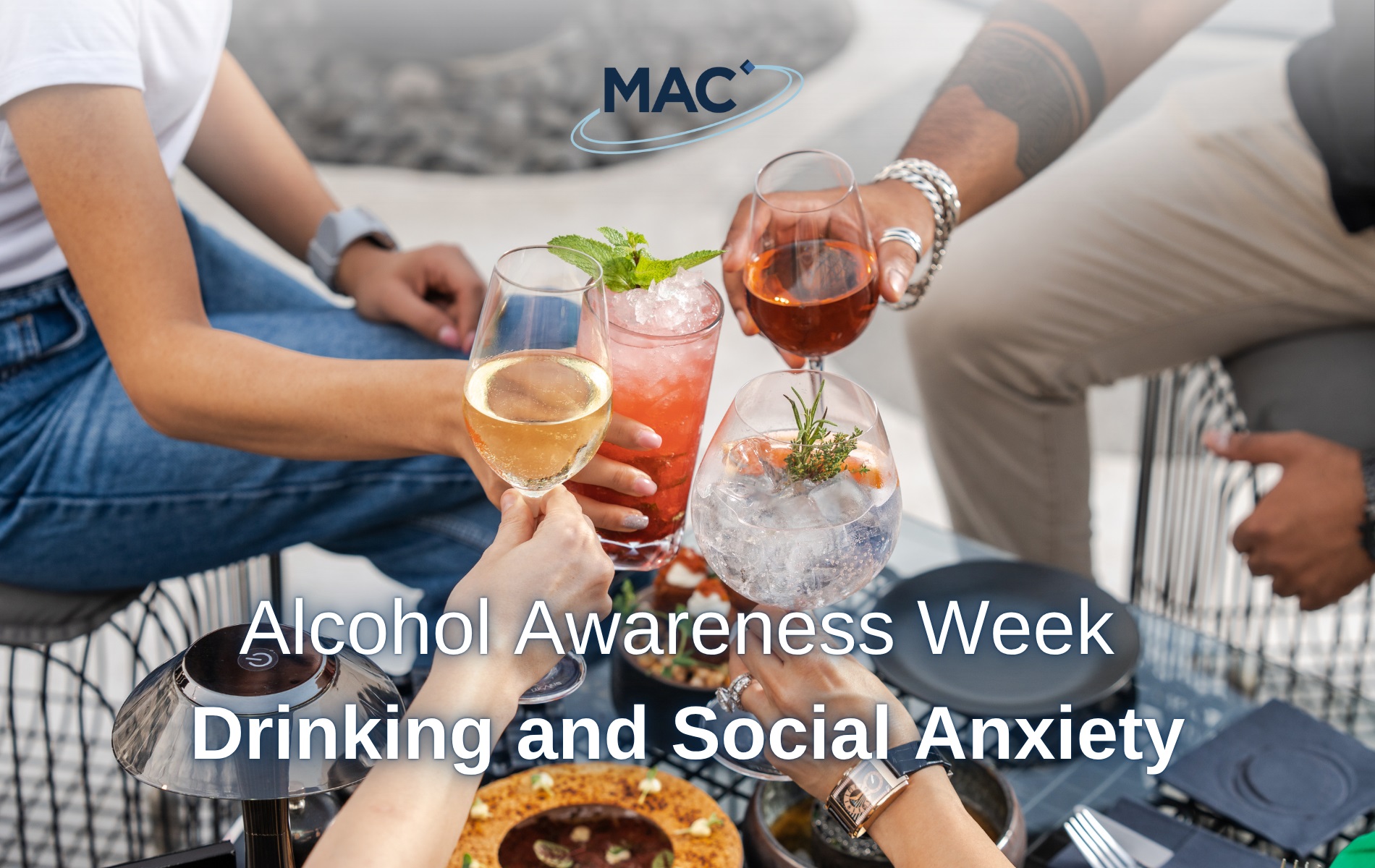Summertime has officially arrived; it’s the season of enjoying the warm weather and socialising with friends. However, social situations and the increasing number of events involving alcohol consumption can be stressful to individuals with social anxiety. This article explores the complex relationship between alcohol and mental health, and highlights strategies for individuals to better cope with social anxiety.
Alcohol Consumption in Summer
Alcohol has long played a prominent role in social settings. It is believed that civilizations have been brewing and consuming alcohol from as early as 7000 BC in places such as China, Turkey, and Honduras¹.
In modern society, alcohol has developed an even deeper association with social events. Britain has long been famous for its pub culture, and the UK also holds significantly higher rates of binge drinking than neighbouring European countries².
What makes summer such a popular time for drinking? Simply put, people tend to drink more in the warmer months. Alcohol consumption typically reaches its peak on summer days, second only to the winter holiday season; the highest rate of drinking appears in June, followed by July and August3.
This is especially true in the UK; nearly a third of Britons drink more alcohol when the weather gets warmer, and 40% of UK adults tend to drink at special occasions, such as weddings, which are held more often in the summer⁴.
Alcohol Consumption and Mental Health
The rising consumption of alcohol raises concerns about health. Alcohol can negatively affect physical and mental health and is a risk factor for many diseases such as liver disease, heart disease, and different types of cancer5.
Alcohol is a central nervous system depressant; it can offer a temporarily calming effect, but when this wears off, there’s typically a re-bound, meaning negative thoughts are heightened. This is partly because alcohol disrupts the balance of neurotransmitters and chemical messengers in the brain6. This is what causes ‘hangxiety’ – the dread, anxiety, and fear you may experience the following morning after drinking alcohol6.
People with social anxiety may use alcohol as a coping mechanism to help them feel calmer and less inhibited in social settings initially, but when the effect of alcohol wears off, social situations are often harder to manage6.
How to Cope with Your Social Anxiety
As alcohol can worsen social anxiety symptoms, you might wish to reconsider the strategies you use to help you with social anxiety.
1. Monitor and log your symptoms
You may want to try monitoring your social anxiety. Taking notes of your symptoms and triggers might help you manage and combat them. You can do this in the form of dates, events, and symptoms and refer to them whenever needed7.
2. Change of mindset
Try reframing your mindset. People with social anxiety often hold negative thoughts about themselves and what could happen in social situations. It is important to recognise thoughts are assumptions, not facts7.
3. Create a set of coping strategies
A toolbox of coping strategies could be of great help. You may want to explore ways to ease your symptoms, such as breathing techniques and muscle relaxation7.
These techniques all aim to help you face your fear. People with social anxiety tend to avoid social settings; however, facing the fear might be the first step to getting to know about your symptoms and coping with them better7.
You may also want to consider counselling as this can help you better understand your emotions and explore where your social anxiety came from8.
Medication can be another effective way to help you cope with social anxiety. You would normally be prescribed an anti-depressant treatment even if you don’t have depression, these medications can help regulate your symptoms9.
Looking for new treatment options for your social anxiety?
Proper treatment is crucial to help individuals living with social anxiety, but not everyone responds to currently available medications.
Social anxiety can be a daily struggle; at MAC we understand how hard it can be. MAC Clinical Research is currently seeking volunteers who have symptoms of social anxiety and would like to take part in a new clinical trial to evaluate the effectiveness of an investigational medication. You may receive up to £2510 for taking part in this clinical trial plus reasonable travel expenses. Find out more via our webpage.
References:
- Impossibrew – History of Social Drinking: Alcohol to Non-Alcoholic
- Alcohol Change UK – Drinking trends in the UK | Alcohol Change UK
- CASAT On Demand – Enjoying Summer Safely: The Dangers of Binge Drinking and How to Stay Safe
- Opinium – Brits Drink More Alcohol in Warmer Weather
- WHO – Alcohol
- Nuffield Health – Why Alcohol Causes ‘Hangxiety’
- Anxiety Canada – Self-help Strategies for Social Anxiety
- British Association for Counselling and Psychotherapy – Social Anxiety: What Therapy Can Help You With
- Harvard Health – Social anxiety disorder: Treatments and tips for managing this challenging condition – Harvard Health




